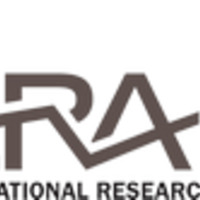Applying Realist Methodology to the Study of Collaborative Capacity in Networked Improvement Initiatives
Item
- Title
- Applying Realist Methodology to the Study of Collaborative Capacity in Networked Improvement Initiatives
- Abstract/Description
-
PURPOSE: This methodological paper explores the application of realist evaluation designs to the study of interdependent problem-solving, or collaborative capacity, through networked improvement initiatives.
PERSPECTIVES/THEORETICAL FRAMEWORK: Networked improvement science is an approach to continuous improvement in schools and school systems that is emerging as a promising means of identifying and scaling context-sensitive solutions to complex problems of instructional practice (Bryk et al., 2015; LeMahieu et al., 2017; Tichnor-Wagner et al., 2017). Network capacity for continuous improvement involves several inter-related developmental processes that hinge on collaboration: (a) building individual team members’ skills and abilities; (b) fostering positive internal relationships for change within school teams; (b) building organizational capacity for change through the effective work of the team within the school and with others in the school system; (c) creating relational capacity for learning among teams across the network; and (d) developing programmatic capacity as an outcome of learning across the network (Foster-Fisherman, et al, 2001; Peurach, 2016). Such collaborative capacities characterize the ways in which the network, the network hub, and affiliated teams gain the knowledge, methods, and skills to solve local problems and scale tenable solutions across organizations.
METHODS/MODES OF INQUIRY: To date, a relatively small number of research designs have been applied to the emerging “scholarship of improvement” (Vasudeva, 2018). These include such designs as developmental evaluation (Hannan et al., 2015; Peurach, Glazer, & Lenhoff, 2016), policy analysis (Glazer & Peurach, 2013), and social network analysis (Daly & Finnagan, 2016). The unit of analysis in these approaches tends to treat system levels as entities rather than viewing the inter-relationship among levels as an emergent property of the overall system.
The paper argues for the value of realist methodology (Maxwell, 2012; Pawson & Tilley, 2009; Salter & Kothari, 2014) as a means of tracing the emergence of collaborative capacity as a system property. In a realist framing, the overriding question is, “What works for whom under what circumstances, how and why?” (Wong et al., 2013, p. 2). The goal shifts from pinpointing features of effective interventions to explaining the mechanisms that foster the emergence of—and resistance to—the development of systemic collaborative capacity. Findings from realist methodology lead to proposed explanatory models, “middle-range theories” (Merton, 1968), that trace paths across conditions, mechanisms and outcomes related to adaptive problem-solving and the effective integration of innovative practice within and across settings.
EVIDENCE: This methodological paper draws on worked examples from an ongoing realist evaluation of a networked improvement community (Author, & Others, 2018) and complements early lessons from this study with reviews of existing studies of the development of collaborative capacity across networks (Weber, Lach, & Steel, 2017; Weber, Lovrich, & Gaffney, 2007).
SCHOLARLY SIGNIFICANCE: Realist approaches offer a promising new contribution to the emerging scholarship of improvement in education. The elaboration of middle-range theories provides researchers and practitioners with research-informed and theoretically robust tools to explore the integration of innovative practice across diverse organizational contexts. - Author/creator
- Eddy-Spicer, David H.
- Date
- At conference
- AERA Annual Meeting
- Resource type
- Research/Scholarly Media
- Scholarship genre
- en Methodological
- IRE Approach/Concept
- Improvement Science
- Networked Improvement Community (NIC)
- Realist Evaluation
- Developmental Evaluation
- Language
- en
- URL
- Official Conference Program Webpage
- Open Access Paper Available in AERA Online Paper Repository
- Link to Open Access PDF
- Citation
- Eddy-Spicer, D. (2019). Applying Realist Methodology to the Study of Collaborative Capacity in Networked Improvement Initiatives. AERA Annual Meeting. http://tinyurl.com/y9zz3w2f
Annotations
There are no annotations for this resource.

